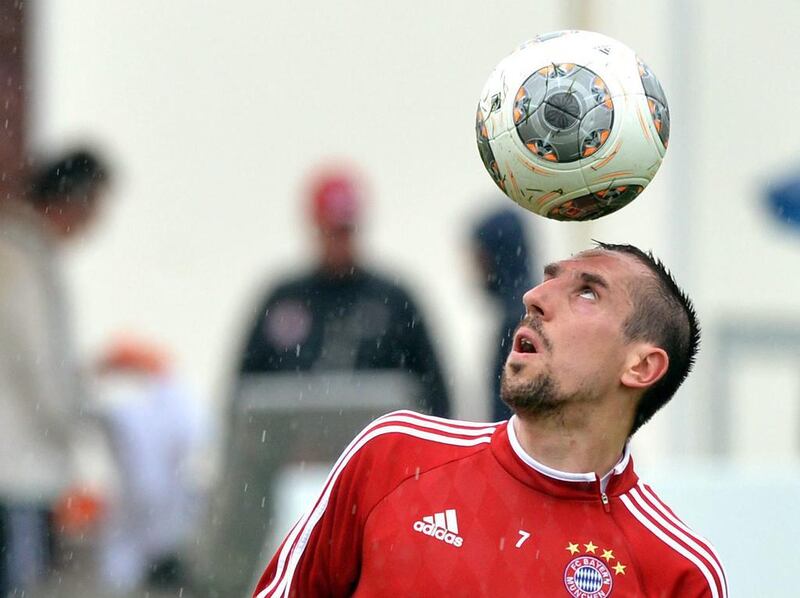Franck Ribery is the odd man out of the three candidates to win the 2013 Ballon d’Or.
He has not won it before, unlike Cristiano Ronaldo and Lionel Messi, and it would be fair to report that the Frenchman did not grow up hearing as many suggestions from coaches or advisers or famous footballers, as the other two did, that one day he might emerge as a contender to be named the finest footballer on Earth.
While Messi and Ronaldo were being hot-housed ever upwards from fabled academies at Barcelona and Sporting Portugal, Ribery was doing shifts on a building site.
That was scarcely 10 years ago, during one of a few periods when he lurked on the margins of the professional game, earning a living with his father, a labourer, while he waited for the next chance to do what he does best.
The journey to a 31st year of his life that has been replete with trophies – the Uefa Champions League, with Bayern Munich, the Bundesliga and German Cup titles, a Uefa Super Cup and the Club World Cup – has been anything but orthodox.
It was troubled at times, because of immaturity and hot-headedness, and how much bearing such traits, or past errors of judgment, have on the voting for the title World Footballer of the Year will be more apparent by the end of today.
Ribery had a tough childhood. He still has facial scars from injuries sustained in a bad car accident when he was two years old.
He grew up in the northern French city of Boulogne sur Mer and his particular brand of skilful, tricksy football earned him invitations to enrol at professional clubs of a good French standard.
At one of those, Lille, his lack of diligence saw him cast aside.
His teenage and early 20s were spent in the lower divisions of the French game – and on the building site – before recognition of his true level came from a scouting trip by the veteran coach Jean Fernandez, then at top-flight Metz. They signed him on a free transfer.
He was at Metz a short time before a surprising move to Galatsaray in Istanbul. There his interest in Islam strengthened. He converted to the faith on marrying his wife of 12 years, Wahiba, a French-Algerian, and has spoken of his religion “making me mentally stronger”.
It was at Marseille, who Ribery joined from Gala, that France really began to recognise his star qualities.
He was a Marseille player when he won the first of his 80 caps. The 2006 World Cup announced him as a high-class international.
But the relationship with the national squad has not always been happy. Ribery was suspended for three months from international football by the French Federation for his perceived involvement in the mutiny of players, who refused to train one day during their disastrous 2010 World Cup in South Africa.
In Bayern’s multi-talented squad, he has not carried the team, or dominated their scoring in the way Messi and Ronaldo have at Barcelona and Real Madrid. Indeed, he let down Bayern in 2010, a reckless foul in the semi-final of the Champions League against Lyon meaning he was suspended for the final.
A more responsible player, though, has been evident in the years since – and one capable of unique brilliance cutting in from the left wing.
As the leading representative of the best club side in the world, he would be a deserving holder of the Ballon d’Or; as a sportsman who has come up the hard way, his story has inspiring elements as well as some rough edges.
sports@thenational.ae






